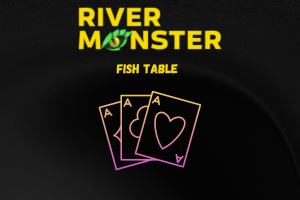Fish Table: A Brief History of Its Origins and Evolution

fish table
Fish tables have been an integral part of human culture for centuries, serving as functional tools and cultural symbols in various societies. The rich history and evolution of fish tables provide a fascinating glimpse into the relationship between humans and the aquatic world. From ancient civilizations to modern times, fish game have undergone significant transformations, adapting to changing needs and technological advancements.
Introduction
Fish tables, also known as fish cutting tables or fish cleaning stations, have been used by fishermen and fishing communities across the globe. These tables provide a designated workspace for cleaning, filleting, and processing fish. The popularity of it extends beyond practicality, often intertwined with cultural traditions and rituals associated with fishing and seafood consumption.
The Origins of Fish Tables
The origins of fish game can be traced back to ancient civilizations that relied heavily on fishing as a means of sustenance. In coastal regions, early fishermen recognized the need for a dedicated area where they could efficiently clean and process their catch. These early fish game were simple structures, usually consisting of a flat surface elevated from the ground to allow easy access and drainage.
Throughout history, fish tables served multiple purposes beyond cleaning fish. They also functioned as communal gathering spaces where fishermen would exchange stories, share knowledge, and engage in social interactions. Online gambling Fish game became the heart of fishing communities, fostering a sense of camaraderie and tradition.
Evolution of Fish Tables
As human societies progressed and technology advanced, so did the design and functionality of it. In ancient Greece, for example,they were constructed with marble tops to ensure easy cleaning and maintenance. Similarly, in East Asia, intricately carved wooden it showcased the artistic craftsmanship of the region.
During the medieval period,it evolved to include additional features such as built-in scales, storage compartments for fishing tools, and even intricate drainage systems to minimize waste and maintain cleanliness. These innovations improved the efficiency and hygiene of fish processing, setting the stage for further developments.
Cultural Significance of Fish Tables
Fish game hold significant cultural importance in many societies. In some cultures, the act of cleaning and preparing fish on a fish game is considered sacred, often accompanied by rituals and prayers to honor the sea and its bountiful offerings. Fish also feature prominently in folklore and legends, symbolizing abundance, prosperity, and the interconnectedness of humans and nature.
For indigenous communities, fish represent ancestral wisdom and sustainable practices. They serve as reminders of traditional fishing methods passed down through generations, emphasizing the importance of ecological balance and respect for marine ecosystems.
Fish Tables in Modern Times
In contemporary times,online casino fish tables continue to play a vital role in the fishing industry. Fishermen rely on these tables to efficiently process their catch, ensuring that the fish are cleaned, filleted, and packed appropriately for sale or distribution. Fish markets and seafood restaurants also utilize fish game to maintain cleanliness and facilitate the preparation of fresh fish for customers.
Moreover, fish game have found a place in recreational fishing. Anglers often use portable fish game during fishing trips to clean and prepare their catch. These portable tables are lightweight, collapsible, and easy to transport, providing convenience and functionality for fishing enthusiasts.

Fish Tables in Popular Culture
Fish game have permeated popular culture, making appearances in various forms of art, literature, and media. In literature, fish game are often depicted as focal points for storytelling, representing pivotal moments of reflection, transformation, or revelation. Artists have incorporated fish game into their paintings and sculptures, using them as symbols of human connection to the sea and the cycle of life.
In the realm of media, fish game have made appearances in movies, documentaries, and television shows that explore fishing communities and maritime lifestyles. These portrayals often highlight the role of fish game as central gathering spaces, where characters share their joys, struggles, and triumphs.
Future Trends in Fish Tables
As technology continues to advance, the future of fish game holds exciting possibilities. Innovative designs incorporating advanced materials, ergonomic features, and integrated technology are likely to emerge. For example, fish tables with built-in digital scales, automated cleaning systems, and connectivity options may streamline the processing and data management aspects of fishing operations.
Additionally, sustainable practices and environmental considerations will play an increasingly crucial role in fish design. The integration of renewable energy sources, water recycling systems, and eco-friendly materials can contribute to minimizing the ecological impact of fish processing activities.
Environmental Impact and Sustainability
While they serve as essential tools for fish processing, it is crucial to address their environmental impact. The large quantities of fish waste generated during cleaning and processing can have detrimental effects on marine ecosystems if not properly managed. Sustainable practices, such as implementing waste management systems, promoting responsible fishing practices, and supporting community-based conservation efforts, can help mitigate these concerns.
Conclusion
The history and evolution of they are deeply intertwined with human culture and the relationship between humans and the aquatic world. From humble beginnings as functional workstations to becoming cultural symbols, they have played a significant role in fishing communities across time. As we move forward, it is essential to appreciate the cultural significance, embrace technological advancements, and promote sustainable practices to ensure that it continue to serve their purpose while preserving the delicate balance of our oceans.
FAQs
- Are fish tables only used for cleaning and processing fish?
- While they are primarily used for cleaning and processing fish, they also serve as communal gathering spaces in fishing communities and carry cultural significance in many societies.
- What materials are commonly used to build fish tables?
- They can be constructed using various materials, including wood, stainless steel, plastic, or composite materials, depending on the specific requirements and intended use.
- Can fish tables be used for other purposes apart from fish processing?
- While they are specifically designed for fish processing, they can also be repurposed for other tasks that require a clean and elevated work surface.
- Do portable it offer the same functionality as fixed ones?
- Portable fish game are designed to offer similar functionality as fixed ones while providing the advantage of portability. They are lightweight, foldable, and easy to transport, making them ideal for recreational fishing trips.
- How can individuals contribute to the sustainability of it?
- Individuals can contribute to the sustainability of fish game by practicing responsible fishing, properly disposing of fish waste, supporting sustainable fishing practices, and raising awareness about the importance of preserving marine ecosystems.







